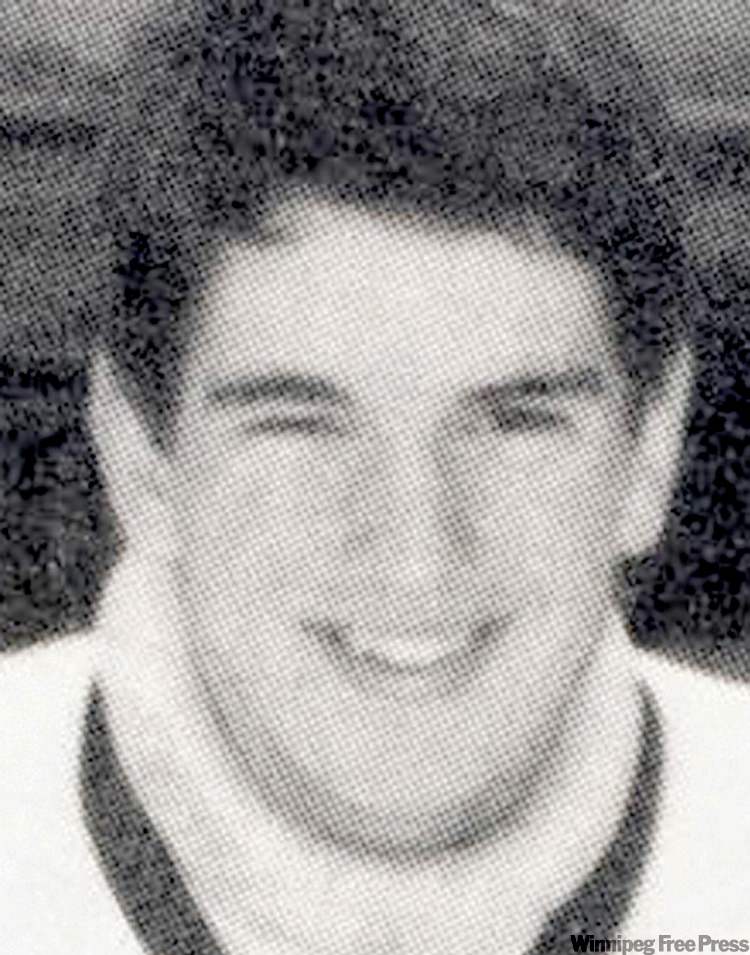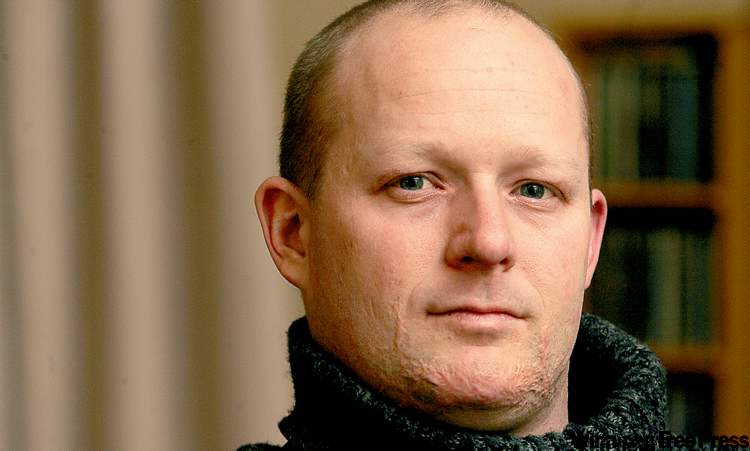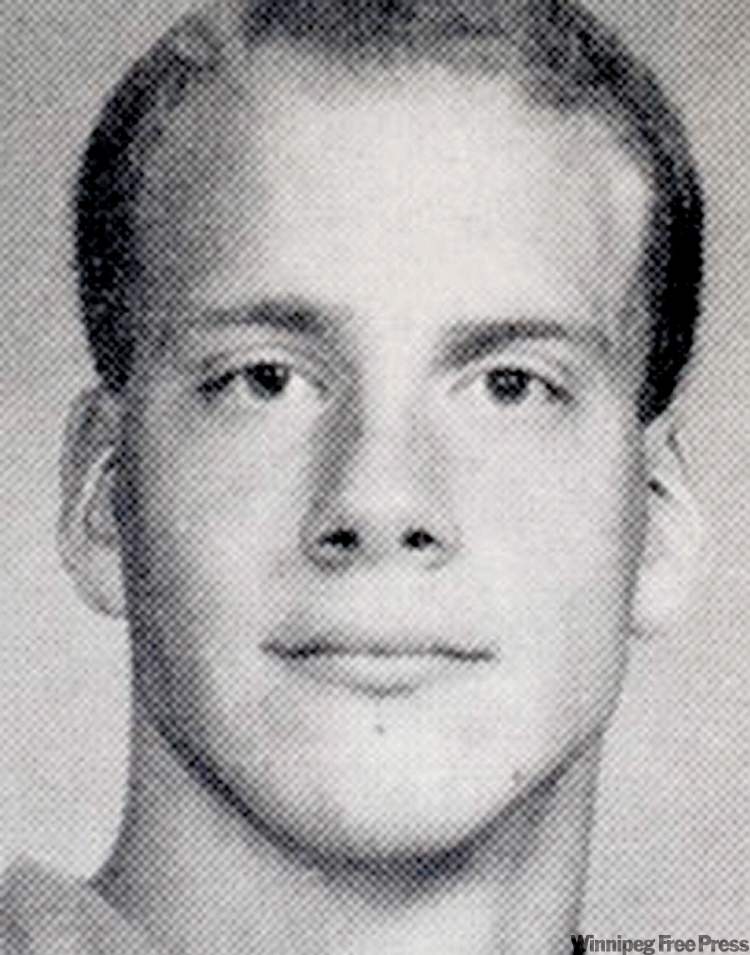Killer to get taste of freedom
-- Parole board approves temporary passes -- Victim pushes for full term to be served
Advertisement
Read this article for free:
or
Already have an account? Log in here »
To continue reading, please subscribe:
Monthly Digital Subscription
$0 for the first 4 weeks*
- Enjoy unlimited reading on winnipegfreepress.com
- Read the E-Edition, our digital replica newspaper
- Access News Break, our award-winning app
- Play interactive puzzles
*No charge for 4 weeks then price increases to the regular rate of $19.00 plus GST every four weeks. Offer available to new and qualified returning subscribers only. Cancel any time.
Monthly Digital Subscription
$4.75/week*
- Enjoy unlimited reading on winnipegfreepress.com
- Read the E-Edition, our digital replica newspaper
- Access News Break, our award-winning app
- Play interactive puzzles
*Billed as $19 plus GST every four weeks. Cancel any time.
To continue reading, please subscribe:
Add Free Press access to your Brandon Sun subscription for only an additional
$1 for the first 4 weeks*
*Your next subscription payment will increase by $1.00 and you will be charged $16.99 plus GST for four weeks. After four weeks, your payment will increase to $23.99 plus GST every four weeks.
Read unlimited articles for free today:
or
Already have an account? Log in here »
Hey there, time traveller!
This article was published 18/06/2010 (5648 days ago), so information in it may no longer be current.
ROCKWOOD INSTITUTION — Earl Giesbrecht has spent the past 20 years in prison after committing one of Manitoba’s most notorious crimes. Curtis Klassen, 15, died after being tied up and having his throat slashed. Tyler Pelke, 14, survived being stabbed, sexually assaulted and set on fire.
Giesbrecht was found guilty of first-degree murder and attempted murder for the November 1990 attacks in Altona. Although he was just 17, he was given an adult sentence of life in prison with no chance of parole for 25 years. Months later, the law was changed so killers under the age of 18 would be eligible for parole in 10 years.
On Thursday, Giesbrecht, 37, appeared before the National Parole Board. He’s applied for escorted temporary absences from Rockwood Institution where he has lived since 2007. A nod from the board would grant him brief trips into the community under strict supervision and conditions.

The Free Press was granted observer status for the hearing.
Tyler Pelke is sitting just a few feet from the man who tried to end his life. Yet, the 34-year-old firefighter shows remarkable poise as he reads his statement, explaining to parole officials why his would-be killer should never be allowed out of prison.
"Time hasn’t healed all scars," Pelke begins. He describes in graphic detail how his throat was slit "within a dime of my jugular," his heart stopped briefly, he suffered severe burns to 25 per cent of his body and needed more than 200 stitches for his wounds.
Pelke recently moved to Alberta but flew back to Manitoba to appear at the hearing. He wants it known he isn’t afraid of Earl Giesbrecht. Pelke visited Giesbrecht in prison five years ago to offer forgiveness, which was part of his healing process.
"I’ve been dead once and I’m not going to live my life slowly dying because I fear Earl coming after me. But forgiveness is not absolution. Curtis does not come back to life because Earl has been forgiven any more than the scars on my throat and chest disappear," he says. "The crimes were severe enough to warrant a life sentence. A life sentence was given and, as such, should be served."
— — —
Pelke’s mother, Robin Doerksen, is still wracked with guilt. Why had she thought it was a good idea to move to Altona only six weeks before the attack? Why, she often thinks, had she chased a career opportunity, landing her dream job there? Why had she gone away that weekend and left Tyler at home?
Doerksen is in tears as she explains her daily torment, how Giesbrecht’s crime left her "angry to the point of rage." She suffered a nervous breakdown, quit her job and still endures post-traumatic stress disorder.
"I became a different person. That is too bad because I really liked the person I was before this happened," she weeps.
— — —
Ian Fowler and Craig Allen are two of Canada’s 80 or so parole board members. They pepper Giesbrecht with questions for more than an hour: What was going on in your life the night of the attacks? Why the extreme violence? How do you think this has affected the Klassen and Pelke families? What have you learned in prison? Why should we believe anything you say?

Fowler and Allen have read extensive reports by Giesbrecht’s parole officer and other members of his treatment team who support his bid for escorted temporary absence. They know he is a model inmate. They know he has participated in restorative justice meetings and completed extensive programming, including sexual-offender treatment. They know he has upgraded his education, earning degrees in business administration and human resources.
"This is the first step in a gradual release from prison for him. He needs to learn what it’s like to live in the community again," Giesbrecht’s parole officer says.
Giesbrecht, a broad-shouldered, muscular man, doesn’t duck questions. Father Bernard Pinet, a prison chaplain who has worked with him over the past 20 years, sits beside him for support. Pinet believes Giesbrecht is ready for the next step.
— — —
"I wasn’t dealing with the anger as it was building up," Giesbrecht begins. He’d struggled with his sexuality for years and was often tormented for being gay. The final straw came when Pelke and Klassen made a disparaging comment to him at a school dance.
"Looking back, it was harmless. But I saw it as one more time I was being teased," Giesbrecht tells the parole board. "When I look back, Curtis and Tyler were representative of everyone who’d ever mistreated me."
Later that night, after having "revenge fantasies," he sneaked over to Pelke’s house with a .357 Magnum and pointed it at the teens. He taped their arms together and eyes shut and put them in different rooms. Giesbrecht tried to strangle Klassen, but the cord broke. He got a knife and slashed his throat, letting him bleed to death. Giesbrecht repeatedly sexually assaulted Pelke before slashing his throat. (The Free Press usually withholds the names of sex-assault victims but Pelke, who speaks publicly about being a survivor, chooses not to be anonymous.)
"I wanted him to feel as humiliated and degraded as I had," Giesbrecht tells the parole board. He soaked a blanket with gasoline, placed it on Pelke and set it on fire. He set several other fires in the house before fleeing. He went home, showered and disposed of his bloody clothes.
"I woke up the next day and remember thinking that I hope this was just a bad dream," he says. Giesbrecht said he knows he has destroyed both families — and he is stunned Pelke and his mother forgive him.
"That has changed my life profoundly. I don’t think I would be able to do that," he says. He apologizes to his own family, who have faced repeated threats and vandalism. Giesbrecht says he’s learned to manage his anger and to communicate when he has a problem. He says he’s scared about returning to society. But the goal is to slowly reintegrate him into society in preparation for the time, five years from now, when he is eligible for parole.
"I know this will be a slow process. The reality is, release for me is going to be measured in many, many years," Giesbrecht says.

— — —
It takes a mere 15-minute adjournment for the parole board to decide. Earl Giesbrecht will get his first taste of freedom since 1990.
Noticeably absent from the decision is Pelke, who didn’t return to the room after the short break.
"We believe you have quite a strong level of insight. You’ve done an awful lot of work in the years you’ve been here to address those risk factors," Fowler tells Giesbrecht.
The board rules Giesbrecht can begin with one escorted temporary absence a month — no longer than eight hours — to visit family. The first two absences can be only be to see loved ones at their homes. He is not allowed to go near Altona. Future meetings could include restaurants. He is also barred from having contact with the Pelke or Klassen families. Giesbrecht will be accompanied at all times by a correctional officer and a supporter, such as Father Bernard. He will not be shackled. The initial order will be reviewed in six months, when it could be expanded.
The hearing is closed.
mikeoncrime.com

Mike McIntyre is a sports reporter whose primary role is covering the Winnipeg Jets. After graduating from the Creative Communications program at Red River College in 1995, he spent two years gaining experience at the Winnipeg Sun before joining the Free Press in 1997, where he served on the crime and justice beat until 2016. Read more about Mike.
Every piece of reporting Mike produces is reviewed by an editing team before it is posted online or published in print — part of the Free Press‘s tradition, since 1872, of producing reliable independent journalism. Read more about Free Press’s history and mandate, and learn how our newsroom operates.
Our newsroom depends on a growing audience of readers to power our journalism. If you are not a paid reader, please consider becoming a subscriber.
Our newsroom depends on its audience of readers to power our journalism. Thank you for your support.


